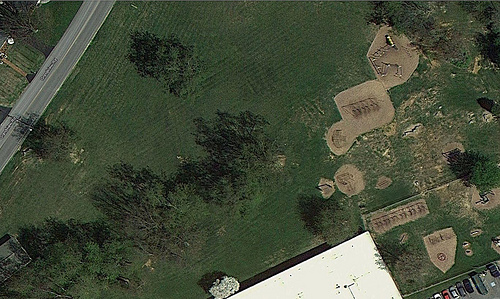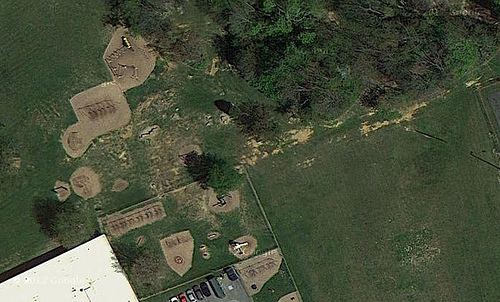
The earliest memories center on the large rectangular jungle gym in the center, or so it would eventually seem to me, of an enormous playground. It was a fort, battleship, a prison, starship, a dungeon, a jungle, a towering inferno, and anything and everything else we needed in first grade. With its seemingly towering western side, it also gave me my first inclination of hierarchy and where I might stand in a given hierarchy. The brave boys, the boys who were already above — literally and figuratively — the average play of a first or second grader would climb to the top, straddle a top beam, and sit there for most of recess, calling out to us mortals below. Or perhaps it was simply they couldn’t fit in. Who knows — it’s been thirty-plus years, and divining motivations of those in my everyday life is difficult enough. Still, I felt them above me, sensed them above, and always thought they were somehow different.

Just down the hill were the swings, which never held much interest to me. I wanted to use my imagination: swings weren’t conducive to that. Back and forth, back and forth, the more athletic boys in later grades would use the swings to show off their bravery, leaping from in-motion swings from heights that made me dizzy.
The swings were not my thing, but just south of the swings, a crag of rocks stretched out endlessly, with perfect curves and shapes to make the most majestic star cruiser ever built. There was a cockpit carved perfectly out of the rock, and toward the tail of the ship, a perfect gun torret for fending off attacks from marauding aliens. When we jocks (and even then, they could be called jocks) chased us nerds away from the serve-all jungle gym, this is where we came. And when we were lucky, we got to use both — mothership and explorer.
As we moved through elementary school, the playground grew with us. A new jungle gym made a better prison/dungeon than the old rectangular beast, so we made a move. A new spider-like contraption took away some of the spill-over from the rectangular beast, so I and my small group of space-loving friends took permanent possession of the dungeon and rock formation.

Unless it was a day that the teacher emerged from the school carrying a rubber, inflatable ball under her arm — a sure sign of impending disaster. We all knew where to go without being told: the large field to the east of the playground.
It was to be a kickball day. These were the days when all my inadequacies and worries seemed to come to fruition: always among the last picked, I hated kickball with a passion. The boys that hung out — literally — at the top of the jungle gym loved it. It wasn’t that I was not athletic. Indeed, I was a fast runner and always looked forward to the 50 yard dash (or was it only 40 yards?) during the fall and spring physical fitness tests. I knew I would have one of the top three times, and by fourth grade, the teacher always had Ernie and me go last. He always beat me, but I never worried: I could shine in second place just as well. Kickball, though, just didn’t do it for me: a rubber ball, bouncing along the roughly turfed field as it approached, with a team of fifteen of my peers all waiting to catch the ball I would inevitably send skyward as the ball took a small bounce just as I kicked.

It was the beginning of my sense of never truly fitting in, my feeling of always been just on the outside. Never popular nor particularly unpopular, something that continued though junior high and high school.
With the Girl entering kindergarten in a few short weeks, I’ve begun thinking about my own school experiences and how I might like L’s to be different and what elements I might prefer to keep as similar to my own — as if I really have any say in the matter at all. Yet, I do: as a parent, I see behaviors and habits form that I quickly correct, explaining things like, “Being unwilling to share will make it difficult to make friends” and “Playing doesn’t mean telling your playmates what to pretend; that will make friendships hard.” We explain; we correct; we role play. Soon, we’ll see how successful our efforts have been.
0 Comments